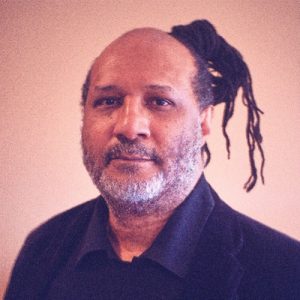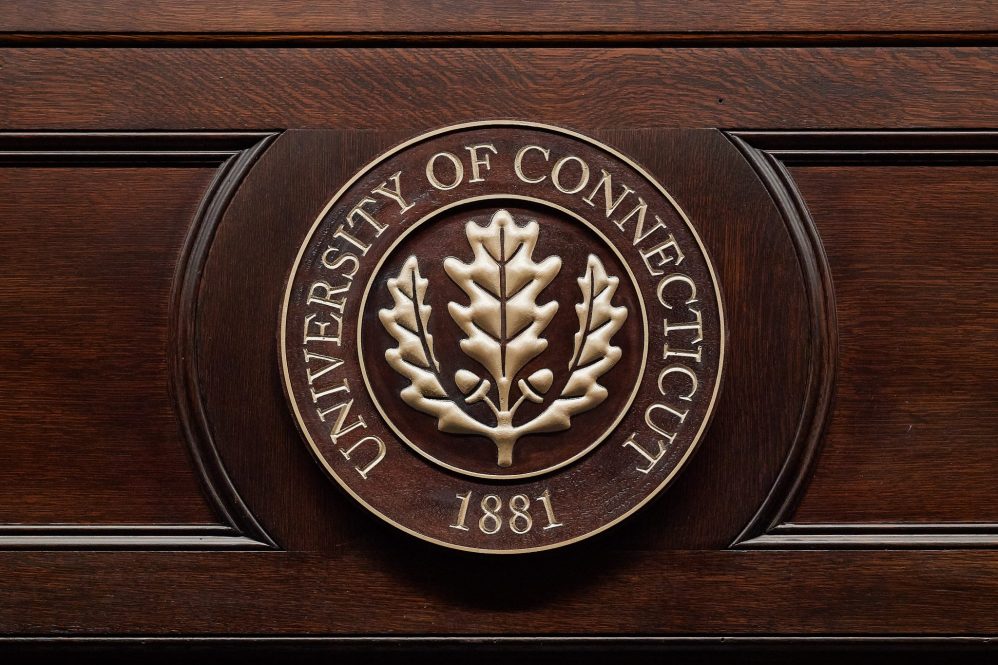Three exceptional scholars at the University of Connecticut have been awarded the highest honor the university bestows on its faculty, the Board of Trustees Distinguished Professor.
Each year, the Office of the Provost seeks nominations from across UConn for the newest cohort of Board of Trustees Distinguished Professors. Candidates must excel in all three areas of research, teaching, and public engagement. A committee of faculty is charged by the Provost’s Office to review and select each year’s honorees from among a competitive pool of nominees.
Honorees retain the title of Board of Trustees Distinguished Professor throughout their career at UConn and receive a $2,500 one-year stipend to be used by each recipient to further their professional activities. The number of available professorships each year is determined by the University by-laws. The Board of Trustees approved the latest cohort of honorees at its June 28 meeting.
The recipients for 2022-23 are as follows, with more detailed biographical information below.
- Douglas J. Casa, Professor, Department of Kinesiology; Director, Athletic Training Education; Chief Executive Officer, Korey Stringer Institute; Research Associate, Human Performance Laboratory
- Lewis Gordon, Professor and Head, Department of Philosophy
- Bandana Purkayastha, Professor of Sociology and Asian and Asian American Studies; Associate Dean for Social Sciences, Regional Campuses, and Community Engagement
“It’s a pleasure to recognize the extraordinary accomplishments of Professors Casa, Gordon, and Purkayastha through their appointment as Board of Trustees Distinguished Professors. They are not only outstanding scholars but also dedicated teachers who have mentored and inspired our students. Each of them is also a catalyst for change beyond the university, using their expertise to address societal and health challenges,” said UConn Provost Anne D’Alleva.
Douglas J. Casa
 Douglas Casa has demonstrated a level of scholarly productivity that has led to an international reputation as one of the world’s leading experts in exertional heat stroke, hydration, thermal physiology, sport performance monitoring, maximizing performance in the heat, sport safety, and public policy regarding the prevention of sudden death during physical activity for the athlete, warfighter, and laborer. The work of Casa has not only added to our fundamental scientific understanding in these areas but has impacted policy and quality-of-care changes globally to establish widely used guidelines and practices that have not only improved performance and made physical activity safer but have directly saved thousands of lives. As a scholar, there are four main areas in which Casa has demonstrated, and exceeded in many cases, the university standards of scholarly excellence: 1) innovation and impact; 2) collaborations; 3) funding success; and 4) publication and public recognition. As an example, Casa has been a PI on 18 Department of Defense-funded grants in the past 6 years. UConn’s Korey Stringer Institute (KSI) was established by Casa at the specific request of Kelci Stringer, whose husband Korey Stringer died a tragic and preventable death from exertional heat stroke during a football practice in 2001 with the Minnesota Vikings. The NFL, Gatorade, and UConn joined KSI as the founding partners when the Institute’s doors opened in 2010. The mission of KSI is to provide research, education, advocacy, and consultation to maximize performance, optimize safety, and prevent sudden death for the athlete, warfighter, and laborer. Casa is the CEO of KSI and, with the assistance of an incredible team, has grown the organization to about 80 staff (25 paid and 55 volunteers), Casa has approximately 400 refereed publications and chapters in edited books, seven books, and over 600 presentations (national and international). The innovative and impactful nature of the organization that Casa has created is unarguable and in many diverse ways, it has had a broad-reaching positive ripple effect of scientific, service, and educational influence.
Douglas Casa has demonstrated a level of scholarly productivity that has led to an international reputation as one of the world’s leading experts in exertional heat stroke, hydration, thermal physiology, sport performance monitoring, maximizing performance in the heat, sport safety, and public policy regarding the prevention of sudden death during physical activity for the athlete, warfighter, and laborer. The work of Casa has not only added to our fundamental scientific understanding in these areas but has impacted policy and quality-of-care changes globally to establish widely used guidelines and practices that have not only improved performance and made physical activity safer but have directly saved thousands of lives. As a scholar, there are four main areas in which Casa has demonstrated, and exceeded in many cases, the university standards of scholarly excellence: 1) innovation and impact; 2) collaborations; 3) funding success; and 4) publication and public recognition. As an example, Casa has been a PI on 18 Department of Defense-funded grants in the past 6 years. UConn’s Korey Stringer Institute (KSI) was established by Casa at the specific request of Kelci Stringer, whose husband Korey Stringer died a tragic and preventable death from exertional heat stroke during a football practice in 2001 with the Minnesota Vikings. The NFL, Gatorade, and UConn joined KSI as the founding partners when the Institute’s doors opened in 2010. The mission of KSI is to provide research, education, advocacy, and consultation to maximize performance, optimize safety, and prevent sudden death for the athlete, warfighter, and laborer. Casa is the CEO of KSI and, with the assistance of an incredible team, has grown the organization to about 80 staff (25 paid and 55 volunteers), Casa has approximately 400 refereed publications and chapters in edited books, seven books, and over 600 presentations (national and international). The innovative and impactful nature of the organization that Casa has created is unarguable and in many diverse ways, it has had a broad-reaching positive ripple effect of scientific, service, and educational influence.
Casa has been affiliated with the Department of Kinesiology and its Athletic Training Education program for over 20 years. He has provided mentorship for their master’s and doctoral students as well as graduate-level exercise science students. In both his individual teaching and role in educational leadership and administration, he has improved teaching at University of Connecticut in multiple ways. Casa has individually taught 24 courses in exercise science and athletic training. For the athletic training program alone, Casa developed 14 new classes and drove the change in its curriculum that resulted in the first-ever accreditation of the athletic training education program at UConn, a program that continues to thrive 20 years later. His continued success as a teacher is demonstrated by the quality of his SET feedback each semester and the uniqueness of the course offerings at UConn thanks to his expertise and creativity in teaching.
Lewis Gordon
 Lewis Gordon is one of the most important and highly regarded intellectuals in the world writing on anti-racism and Africana philosophy. He is internationally recognized as the leading contributor to the fields of Black existentialism, Africana Existential Phenomenology, Fanon studies, Teleological Studies of Disciplinarity (a field he invented), Decolonialism, and Afro-Jewish Studies. His original theories have generated widely discussed concepts such as “bad faith embodiment,” “epistemic closure,” “disciplinary decadence,” and “shifting the geography of reason,” among many others.
Lewis Gordon is one of the most important and highly regarded intellectuals in the world writing on anti-racism and Africana philosophy. He is internationally recognized as the leading contributor to the fields of Black existentialism, Africana Existential Phenomenology, Fanon studies, Teleological Studies of Disciplinarity (a field he invented), Decolonialism, and Afro-Jewish Studies. His original theories have generated widely discussed concepts such as “bad faith embodiment,” “epistemic closure,” “disciplinary decadence,” and “shifting the geography of reason,” among many others.
Gordon is the author of 12 books, editor and co-editor of 6 anthologies, and the author of over 100 articles in academic journals, 79 book chapters, and over 39 introductions, forewords, and afterwords. His work has been translated into over two dozen languages. His seminal first book, “Bad Faith and Anti-Black Racism” is widely regarded as a classic in the study of existential philosophy and racism, while his recent “Fear of Black Consciousness” has been hailed by Judith Butler as expanding our understanding of “how race consciousness is made and lived.” The latter has received coverage and press in dozens of newspapers and radio media across the globe, including in Publishers Weekly. Considered together, Gordon’s works constitute a significant and original vision of the human condition and consciousness.
As a teacher, Gordon is a recognized innovator and leader—internationally and at UConn—in the movement to make philosophy and the humanities a more inclusive subject. Gordon’s courses integrate sources from ancient through contemporary Africa, Latin America, and Native America. This has attracted a diverse group of African and Latin American students to philosophy—especially at UConn. Thus, for example, at the undergraduate level, his introductory course, Phil 1106, started with 35 students in his first semester teaching it in 2014; it has since grown into a highly sought-over 370-student lecture course. Moreover, Gordon has designed a number of new courses for the philosophy department’s curriculum, including seminars on Africana Philosophy, Global Southern Phenomenologies, Global Existentialism, Race in the Formation of Human Science, Phenomenology, Philosophy of Psychoanalysis, and Philosophy of Social Science.
Beyond his extensive service to the University, Gordon is on the editorial board of many journals, book series, and a news outlet (one of which won the 2021 Izzy Award for Independent Media). His work as an institution-builder includes founding Radical Philosophy Review, for which he was the first executive editor and for which he edited 6 volumes. The 26th volume of that journal is now at-press. He co-founded the Caribbean Philosophical Association in 2003, for which he was the first president. He founded Temple University’s Center for Afro-Jewish Studies, and its Institute for the Study of Race and Social Thought; and at Brown University, he founded the Department of Africana Studies, for which he was the first chairperson. He serves as an evaluator for the MacArthur, Ford, Newcombe, South African Research Council, and ACLS fellowships.
Bandana Purkayastha
 Purkayastha’s research focuses on the structures of inequalities and social transformation, with specific focus on migrants and migration, gender and intersectionality from a global perspective, and critical human rights. A prolific scholar, with a current tally of 15 books, 36 peer reviewed articles, 35 chapters, and many other publications that reach across the world. Eagerness to engage with her ideas are evident through her long list of invited talks in the US and across the world, as well as the invitations to share her expertise for policy purposes by WHO (on migrant women and health) and diverse United Nations (UN) offices (including on violence against women and forced migration). A brilliant sociologist, she has been at the forefront of challenging global conceptual and methodological hierarchies, including between the Global North and South, that act as barriers to robust and meaningful social science research.
Purkayastha’s research focuses on the structures of inequalities and social transformation, with specific focus on migrants and migration, gender and intersectionality from a global perspective, and critical human rights. A prolific scholar, with a current tally of 15 books, 36 peer reviewed articles, 35 chapters, and many other publications that reach across the world. Eagerness to engage with her ideas are evident through her long list of invited talks in the US and across the world, as well as the invitations to share her expertise for policy purposes by WHO (on migrant women and health) and diverse United Nations (UN) offices (including on violence against women and forced migration). A brilliant sociologist, she has been at the forefront of challenging global conceptual and methodological hierarchies, including between the Global North and South, that act as barriers to robust and meaningful social science research.
Significant disciplinary accolades as well as international recognition of her expertise are testimonies to her national and global scholarly prominence. In 2019, she was awarded the highest honor from the American Sociological Association [ASA], the Jessie Bernard Award, which is given “in recognition of scholarly work, inclusive of research teaching, mentoring and service, that has enlarged the horizons of sociology to encompass fully the role of women in society.” She continues to publish on racism and gendering structures that affect migrants. Her recent work on trafficking and other victims of forced migration, and her theoretical perspective on voluntary and forced migration, was featured by UN-IOM in 2022.
Purkayastha’s teaching record reflects her commitment to international, interdisciplinary, teaching and mentoring. Her commitment is to engage students in an intellectual feast while making sure they are well supported to grow as people who are mindful of equity and justice, and the inherent humanity of others. During her time at UConn she has developed and taught seven graduate and undergraduate courses, and co-developed three others to fill department needs. These courses all meet diversity, international, and interdisciplinary initiatives of the university. Her courses are cross-listed with, or serve the requirements of Asia and Asian American Studies (AASI), Human Rights, India Studies, and Women’s Gender and Sexuality Studies. She has been a champion of using multiple methods for teaching and a consistent and enthusiastic early adopter of new technologies. Over the years she has used her national and global networks and leadership positions to bring outstanding scholars and prominent leaders to the university to enrich UConn’s educational offerings.



